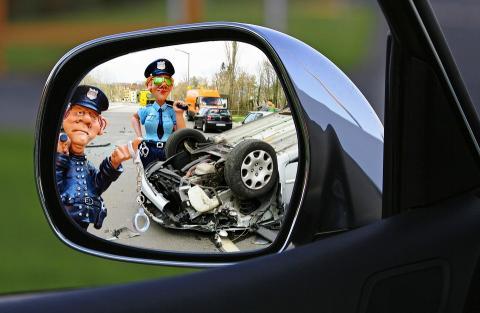Unlike a traffic infraction, a criminal traffic ticket alleges that you have committed a criminal traffic violation. Most criminal traffic offenses are misdemeanors.
Some examples of misdemeanor criminal traffic matters are:
- Driving without your driver’s license on your person.
- Driving without auto insurance. Also carries a “Driver's Responsibility Fee” from the Michigan Department of Treasury. The driver responsibility fee is in addition to the court costs assessed for the violation. This fee is paid once per year, for two years. To read more about Michigan’s Driver’s Responsibility fees, please refer to its FAQs.
- Traffic offenses involving alcohol (misdemeanor or felony). This can result in suspension of your driving privileges, points on your driving record, a criminal conviction that cannot be deferred or expunged, driver responsibility fees, court costs, and/or a period of court-ordered probation.
Please note that misdemeanor offenses under Michigan’s Motor Vehicle Code cannot be deferred or expunged from your record.
One example of a felony criminal traffic matter is:
- Drinking under the Influence (DUI) that resulted in serious bodily injury or death
Further, criminal traffic offenses can carry the possibility of a jail or prison sentence depending on whether it is a misdemeanor or a felony. Other criminal consequences include suspension or revocation of your license, probation, community control, home confinement, fines, traffic classes, and vehicle impoundment.
Even still, sometimes multiple infractions—both civil and criminal—can result from a traffic stop. For example, suppose you are stopped for failure to make a complete stop at a stop sign, and the officer believes you have consumed alcohol. After being asked to take a field sobriety test, you fail and also refuse alcohol testing. Then, the officer obtains a warrant to test your blood for alcohol content.
The above encounter could result in a civil ticket for the stop sign violation, a civil ticket for refusal to take a “preliminary breathalyzer test” (PBT), an automatic suspension of your driver’s license, and six (6) points assessed to your driving record for refusal of chemical tests (PBT does not apply—this refers to the BAC Datamaster test that is administered after you are arrested), and a misdemeanor charge of “operating a motor vehicle while intoxicated.” The misdemeanor charge would be issued later, after your blood alcohol test results have been positively confirmed.
Lastly, other non-criminal consequences include but are not limited to:
- Loss of insurance
- Revocation of special licenses such as CDL
- Increased insurance premiums
- Loss of employment
- A permanent mark on your driving and criminal record

